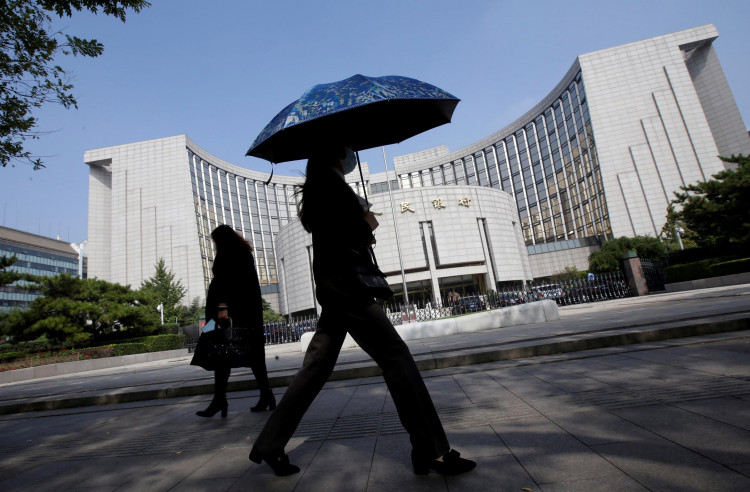The Chinese currency is on course for its worst drop as an escalating trade tussle with Washington takes its toll on investor enthusiasm. The yuan (CNY) has plunged almost 4 percent this month, its worst decline since 1994 when the modern foreign exchange rate system was implemented.
Based on a Reuters projection, the People's Bank of China adjusted the yuan's midpoint at 7.0810 per US dollar, Tuesday - weaker compared to the previous day's rate, but higher than the 7.1055 region exchanges were estimating.
Without any convincing indication of improvement in their economic deals, the outlook will be bleak for both the Chinese economy and markets, Credit Agricole senior analyst Dariusz Kowalczyk, said in a note on Monday. The yuan, he added, may continue to fall in the near-term to 7.3 per USD.
The Chinese currency's 14-day correlated strength versus the American greenback has dipped below 30, showing steady selling momentum. The index was down below this threshold for two weeks this month, the most consistent in a 24-day stretch since May.
Not only has it retreated against the US currency, but the CNY also hit a record low against a host of other currencies. The Bloomberg version of the CFETS RMB Index - which monitors the CNY against the exchanges of 24 other platforms - was down to 91.1, it's lowest since the metric was implemented in 2015.
In the United States, stock futures were subdued Monday, after sharp falls in Asia, as Beijing hit back at Washington's move to fast-track taxes on Chinese-made products by letting the CNY retreat to its weakest against the USD in more than 10 years.
10-year US Treasury output was down to 3-year lows of 1.764 percent as investors hiked bets on further decreases in interest rates by the Federal Reserve.
Meanwhile, Wall Street seemed to appreciate the statements made recently by Chinese central bank governor Yi Gang, who said China will not use the yuan as a tool to counter against economic imbalances like trade discords. The PBOC governor pointed out that the currency exchange rate is now at an "appropriate level" and that it is in connection with the country's market principles.
Chinese economic ministers have promised to avoid "competitive devaluation" to help the country's exporters in the face of US President Donald Trump's increase in taxes. By devaluing the yuan, Chinese finance leaders enable the government-set currency rate to be more market-oriented. The PBOC simply allows the yuan to slide to use it as leverage to cushion US tariffs.






